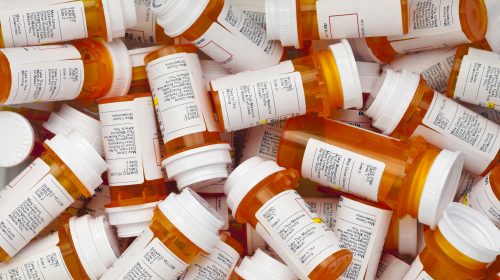Expert Insights
It’s no secret that Texas is in the middle of an overwhelming opioid epidemic. And while we normally hear nothing but doom and gloom when we talk about the opioid crisis, I ran across some encouraging and exciting news for once and wanted to share it. The University of Texas Health Science Center at San Antonio (UT Health San Antonio) was recently awarded a massive $1.8 million grant from the National Institutes of Health (NIH) in order to study peer recovery support systems and services for those struggling with opioid use disorder.
We know that medication-assisted treatment with buprenorphine (Suboxone) is considered the “gold standard of care” for opioid addiction, recent data seems to indicate that certain types of support services can actually increase the effectiveness of addiction treatment and help to support long-term recovery.
NIH is providing the grant money to UT Health San Antonio in order to study emerging “peer” recovery support systems, which includes people who have lived experience with addiction, they are in long-term recovery, and have specialized training to support others during their recovery process through non-clinical means. Examples include things like mentorship, occupational training, transitional housing, and aftercare programs. It will be very interesting to see what kind of impact peer support has on the recovery process as a whole.~ Olivia Pennelle
Cost of Rehab in San Antonio
The cost of alcohol and drug rehab in San Antonio varies depending on several factors. The price may increase for each additional substance use that you need to address. Your decision to choose a facility in a high-income neighborhood or location with high real estate values can also increase the cost.3 The type of medications you receive may influence the cost as well since some medications are more cost-effective than others.4
Free or Low-Cost Drug Rehab Centers in San Antonio
State-funded treatment centers in Texas receive public health funds to deliver services to residents with substance use disorders.5 The Texas Health and Human Services work with two behavioral health and 37 local mental health organizations to deliver services in communities in Texas. You can contact your county’s mental health or behavioral health authority for recommendations for the most appropriate services available. You can also explore the Addictions.com website to find accredited, low-cost or free San Antonio drug rehabs.
Does Insurance Cover Rehab Center Costs?
Yes, insurance will typically cover at least some of the cost of care in San Antonio, because of the Affordable Care Act (ACA) and the Mental Health Parity and Addiction Equity Act (MHPAEA).
Private Insurance
Private insurance, like employer-based insurance and individual health plans, is required to cover substance abuse treatment under the ACA and MHPAEA. You can expect your group health plan from work to provide insurance to the same extent as medical or surgical coverage.6 If you have individual insurance, you can also expect equal coverage for rehab as for medical or surgical conditions because of the requirements of the ACA.6 However, the extent of private insurance coverage will depend on the insurance provider and your plan. Popular providers include Anthem, Kaiser, UnitedHealth Group, Cigna, and Aetna.7
Medicaid
Medicaid is a state- and federally-funded program that provides medical coverage for people with low income. Medicaid in Texas aims to increase healthcare access for Texans who might not use medical services for themselves and their children without state assistance.8 Texas Medicaid covers the following outpatient services:9
- Assessment
- Outpatient group and individual therapy
- Medication-assisted treatment
- Outpatient withdrawal management
Additionally, Texas Medicaid covers residential withdrawal management and residential care.9
Medicare
Medicare is a federal insurance program for people who are 65 years or older. People with disabilities, ALS, or end-stage renal disease may qualify for Medicare before turning 65. Medicare covers the following services:10
- Screening
- Inpatient
- Outpatient
- Partial hospitalization
- Brief interventions
- Referrals
Does Your Insurance Plan Cover Addiction Treatment?
Your insurance plan is likely to cover care to some extent because of the ACA and MHPAEA. Get help today – call
800-681-1058
(Who Answers?)
to find an alcohol and drug rehab options in San Antonio. You can also call the number on the back of your insurance card to speak to your provider directly about the details of your insurance plan.
How To Finance Addiction Treatment in San Antonio
If you don’t qualify for free or low-cost services, you find that free facilities are full, or you don’t have insurance, there are alternative ways to pay for drug rehab in San Antonio. If your income is on the lower end, your financing options include a scholarship, a sliding-scale program, or a payment plan.
Find a Program That Offers Payment Plans
Some facilities offer payment plans to people with low income and no insurance. With a payment plan, you can expect to make payments toward the costs over a period instead of paying one large amount.
You can find drug rehab centers in San Antonio that offer payment plans and different financing options by using Addictions.com’s state resource guide or by calling the facility directly and asking about your options.
Apply for a Scholarship
Scholarships are a type of funding that pay for part or all of the cost of your treatment. Some programs have special scholarships or grants to help people who cannot afford to pay the costs.11 But it’s important to note that if you don’t finish, you could be at risk of losing your scholarship, in which case you’ll be financially responsible.11 You should ask questions about the terms of a grant or scholarship before accepting the money. You can contact facilities or detox centers in San Antonio directly to find out if they have suitable scholarships.
Sliding-Scale Program
You can find a sliding-scale program to help with the cost of care if you have no insurance and limited financial resources. A sliding scale will adjust the cost and charge a discount fee based on your ability to pay. Your eligibility for the sliding scale will depend on your income and other factors.12
San Antonio Alcohol and Drug Use Statistics
Drug and alcohol statistics for the San Antonio region for people 18 years and older from 2018 to 2020 were as follows:1

Less than 1% reported use of methamphetamines in the past year

About 3% reported prescription pain reliever misuse in the past year

About 52% reported alcohol use in the past month

Nearly 27% reported binge alcohol use in the past month
Close to 10% of San Antonio residents reported illicit drug use in the past month.
Almost 13% of San Antonio residents reported marijuana use in the past year
About 1% of San Antonio residents reported cocaine use in the past year.
From 2018 to 2020, national data showed that less than one percent of people between 15 and 25 in the region of San Antonio, TX, reported heroin use in the past year.1
Alcohol and Drug Laws in San Antonio, TX
Texas Good Samaritan Overdose Prevention Statute: This law encourages Texas residents to seek emergency medical attention during an overdose situation. It protects individuals who call 911 for assistance with a suspected overdose from prosecution for possession of certain controlled substances (if they have not called 911 for an overdose in the preceding 18 months).17
Sandra Bland Act: This law provides for rehabilitation for individuals arrested or convicted of non-violent crimes. Per this statute, Texas criminal justice officials must work to identify people with suspected substance use concerns and send these individuals to an appropriate facility rather than send them to jail.18
Texas Protections for Employees Seeking Addiction Treatment: Under the Family and Medical Leave Act (FMLA), Texas employees who voluntarily seek alcohol and drug treatment may be eligible for time off work. The Americans with Disabilities Act (ADA) also provides some protections for employees who seek addiction care.19
Marijuana Laws: Texas law is one of the strictest in the country regarding marijuana. Recreational use and growth are illegal, and medical use is legal but heavily regulated. Penalties for use, growth, possession, or sale of marijuana range from 180 days in jail and a $2,000 fine to life imprisonment and a $50,000 fine.20
Addiction Treatment Settings
The level of care you need may be determined by the severity of your substance use disorder and your need for a structured environment.
Medical Detox
Medical detox is for addressing withdrawal symptoms. Medical detox does not replace addiction treatment. However, it is the initial step of the recovery process. You can expect this to help you by preventing the serious physical and emotional symptoms that you experience when you stop using drugs and alcohol.
Inpatient
Inpatient programs are intensive and delivered in a hospital setting. You can expect to stay in rehabilitation for one to three months or more. These services offer 24-hour access to an interdisciplinary team of healthcare professionals who can attend to your medical and nursing needs.13 The benefits of a residential stay include 24-hour care from the interdisciplinary team, a structured environment, and the absence of a stressful and distracting home environment.
Partial Hospitalization Programs (PHPs)
PHPs provide a step-down option after you complete residential treatment.13 You can expect it to last for six to eight hours on weekdays. A PHP may be appropriate if your home environment supports recovery, but you need some structure to prevent relapse.13 A benefit of the PHP is that you do not spend the entire day at the facility.
Intensive Outpatient Programs (IOPs)
IOPs are similar to residential programs in their intensity. However, care is delivered in an outpatient setting.13 A benefit of the IOP is that you do not have to stay overnight at the facility.
Standard Outpatient
Standard outpatient programs take place during the day, in the evenings, before or after school or work, and on the weekends.13 You may receive standard outpatient care if you have mild to moderate addiction. This option may also be best after you complete a more intensive program.13 The flexible schedule can be beneficial, especially if you want to continue with work or school or have other personal commitments during rehab.
Aftercare
Relapse prevention is also known as aftercare. This is usually the final step of recovery and begins when you complete a rehab program. It involves ongoing encouragement through therapy, 12-step groups, non-12-step groups, sober living homes, and other types of support.
Specialized Drug Rehabs in San Antonio
Veteran
Veterans have special needs because of their unique way of life with sacrifices and military experiences. Research has shown that veterans with dual diagnoses have better outcomes when they receive care from veteran treatment centers.13 You may need these services if you or your family members have served in the military.
LGBTQ+
Access to LGBTQ+ friendly programs is critical because of the increased risk of substance abuse problems in this population. Research has shown that the LGBTQ+ community has more severe substance use disorder and a higher risk of substance use disorder.13 Additionally, LGBTQ+ people start using drugs and alcohol earlier than non-LGBTQ+ people.13 Programs for LGBTQ+ focus on the needs and concerns of the LGBTQ+ community.
Faith-Based
Faith-based programs offer a spiritual approach to addiction recovery, integrating prayer groups and literature studies into treatment plans. If your religion is important to you, you may want to consider finding a spiritual facility.
Men-Only
Men-only programs are designed to cater to the needs of men. You can expect to receive treatment in a men-only environment with providers who understand and focus on specific issues that affect men.
Women-Only
Women-only programs provide unique services to cater to the needs of women. For example, pregnant and postpartum women may have special needs because of the effect of medications on pregnancy and breastfeeding.
Teen
Teen programs understand the importance of adolescents and teens having their own space for addiction recovery in which they can support one another from an understanding and empathetic place. Teens may have different treatment needs than adults, such as help with family dynamics, co-occurring mental health disorders, and education.
Should You Travel for Drug and Alcohol Rehab in San Antonio?
Your decision to seek out accredited drug rehab centers in San Antonio may be influenced by several factors, such as:
- Your desire to move away from your current environment
- Your need for support from friends and family living in San Antonio
- Your desire to live in San Antonio during treatment
- A lower cost of living in San Antonio compared to your current residence
Resources
- CDC. (2019). Products – Vital Statistics Rapid Release – Provisional Drug Overdose Data. CDC.
- FindTreatment.gov. (n.d.). FindTreatment.gov.
- Substance Abuse and Mental Health Services Administration. (n.d.). 2018-2020 National Survey on Drug Use and Health Substate Age Group Tables.
- Peterson, C., Li, M., Xu, L., Mikosz, C. A., & Luo, F. (2021, March 1). Assessment of Annual Cost of Substance Use Disorder in US Hospitals. JAMA Network Open, 4(3), e210242.
- Mericle, A. A., Karriker-Jaffe, K., Patterson, D., Mahoney, E., Cooperman, L., & Polcin, D. L. (2020). Recovery in context: Sober living houses and the ecology of recovery. Journal of Community Psychology, 48(8), 2589–2607.
- Malone, M., McDonald, R., Vittitow, A., Chen, J., Obi, R., Schatz, D., Tofighi, B., Garment, A., Kermack, A., Goldfeld, K., Gold, H., Laska, E., Rotrosen, J., & Lee, J. D. (2019). Extended-release vs. oral naltrexone for alcohol dependence treatment in primary care (XON). Contemporary Clinical Trials, 81, 102–109.
- Texas Health and Human Services Commission. (2022). Find Your Local Mental Health or Behavioral Health Authority.
- U.S. Department of Health & Human Services. (2021). Mental Health and Substance Use Insurance Help.
- American Medical Association. (2021). Competition in Health Insurance: A comprehensive study of U.S. markets.
- Benefits.gov. (n.d.). Texas Medicaid.
- Texas Health and Human Services. (2020, November 12). Medicaid Substance Use Disorder (SUD) Rule Amendment.
- Medicare.gov. (n.d.). Parts of Medicare.
- Substance Abuse and Mental Health Services Administration. (2019). Paying for Treatment.
- Health Resources & Services Administration. (2018). Chapter 9: Sliding Fee Discount Program.
- Substance Abuse and Mental Health Services Administration (US); Office of the Surgeon General (US). (2016). Facing Addiction in America: The Surgeon General’s Report on Alcohol, Drugs, and Health [Internet]. Washington (DC): U.S. Department of Health and Human Services.
- Substance Abuse and Mental Health Services Administration (2021). Telehealth for the Treatment of Serious Mental Illness and Substance Use Disorders
SAMHSA Publication No. PEP21-06-02-001 Rockville, MD: National Mental Health and Substance Use Policy Laboratory. Substance Abuse and Mental Health Services Administration, 2021. - Texas Good Samaritan Act. (n.d.). CPR Today. http://www.cprtoday.net/images/Texas_Good_Samaritan_Act.pdf
- Silver, J. (2017, June 15). Texas Gov. Greg Abbott signs “Sandra Bland Act” into law. The Texas Tribune. https://www.texastribune.org/2017/06/15/texas-gov-greg-abbott-signs-sandra-bland-act-law/
- Texas Legislature Online. (2017). Bill Text.
- Cornwell, A. M. (2022, November 3). Is marijuana legal in Texas? (Updated: November 2022). CBD Oracle. https://cbdoracle.com/news/policy/marijuana-legal-texas/



